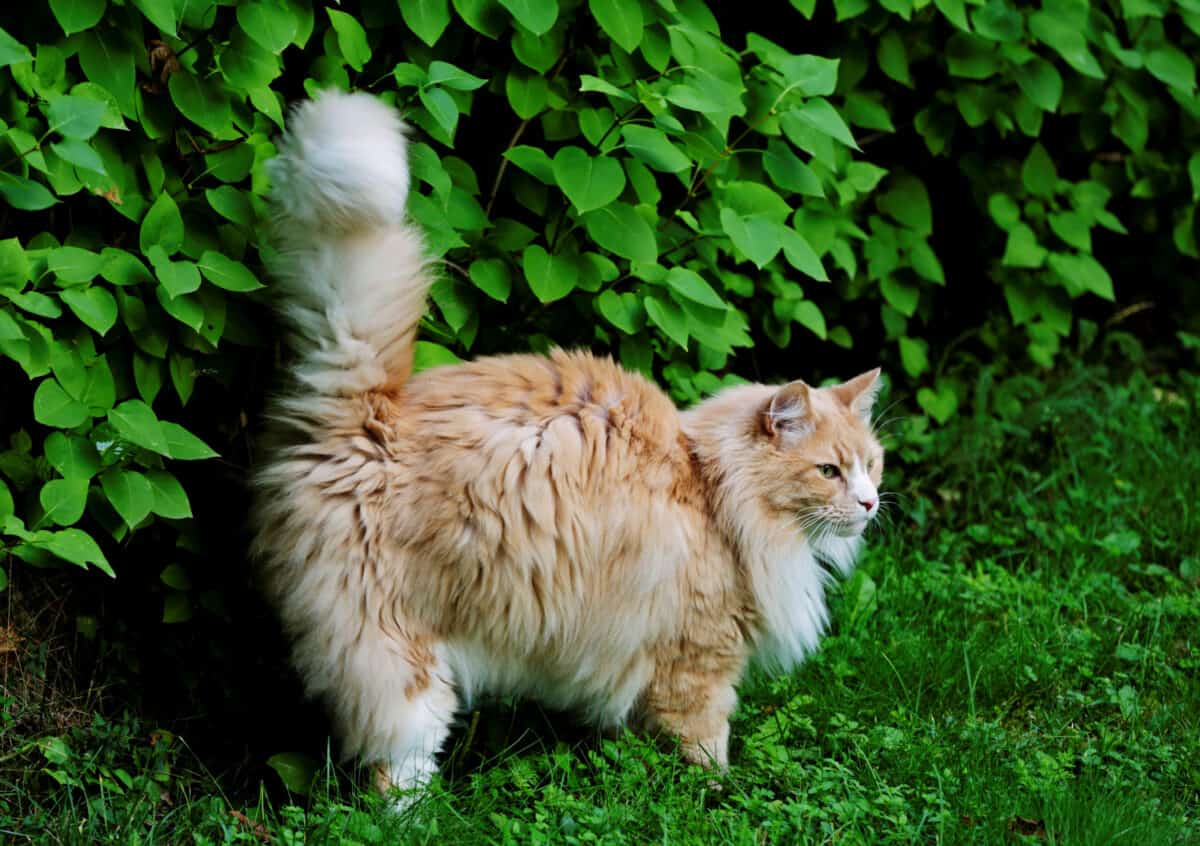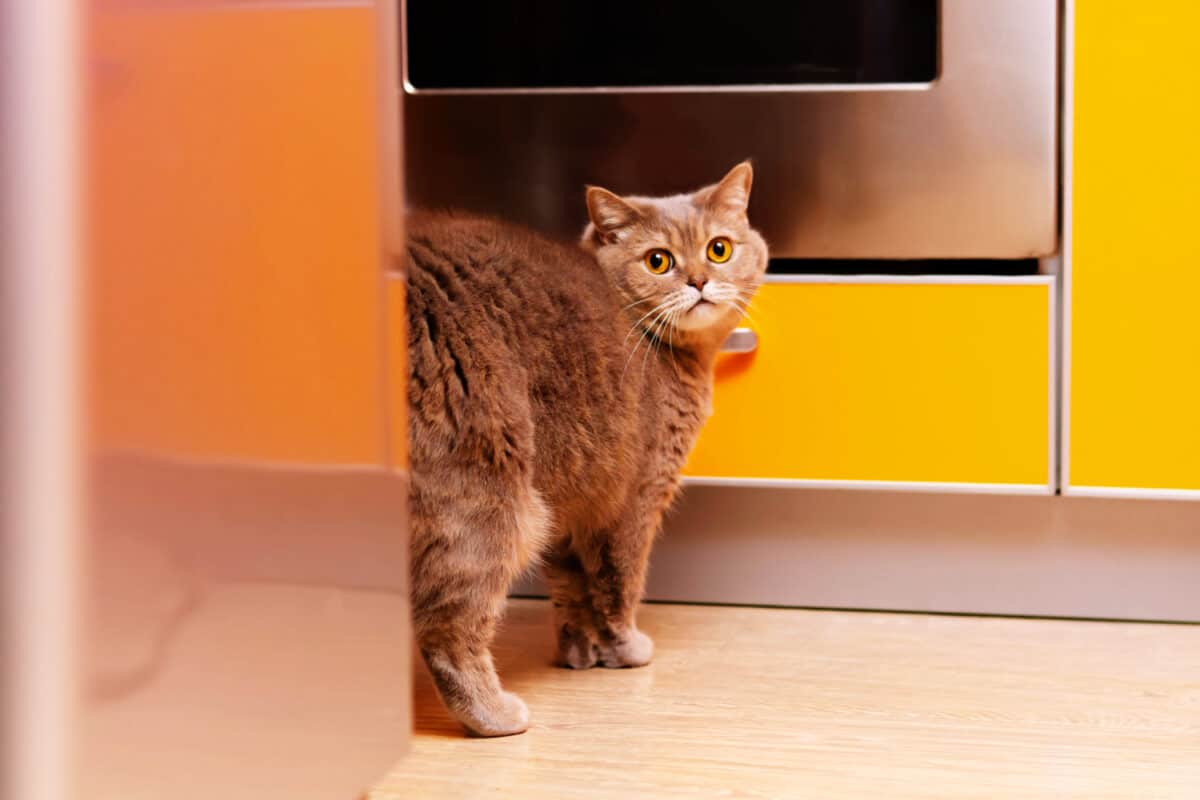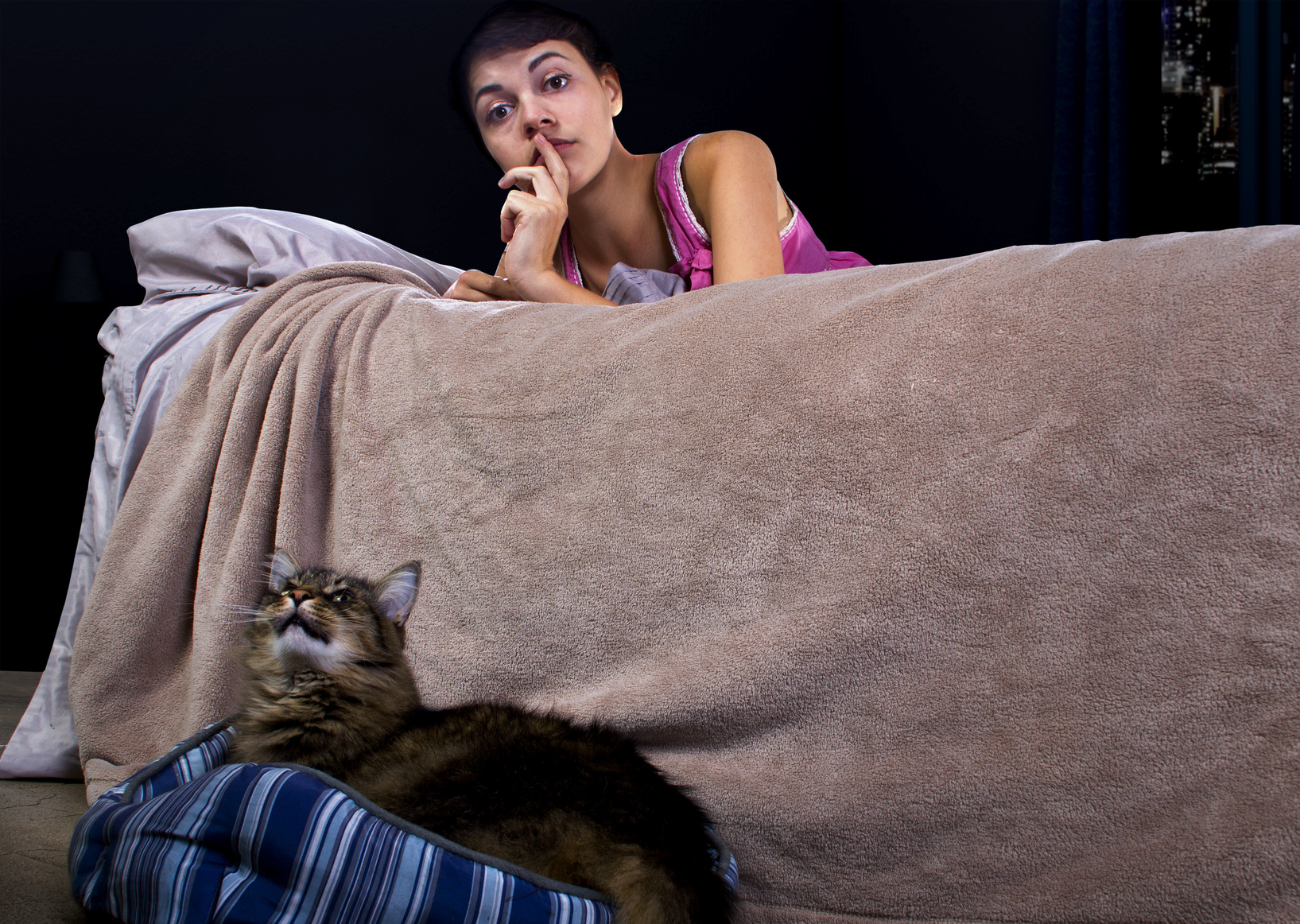Ever walked into a room and got hit by that strong scent of cat urine? Or noticed your cat back itself up against the wall, lift its tail, and release a quick burst of urine? This isn't your kitty misbehaving or forgetting their litter box manners. This is 'spraying' - a unique method our furry pals use to mark their territory.
In this article, we're going to look at what cat spraying is, why it happens, and how you can manage it effectively. We'll discuss the distinguishing factors between common urination and spraying, exploring the different stances our cats take in the process.
But that's not all. We will also understand why spraying is not a litter box problem. While it can occur concurrently with proper litter box usage for urination and defecation, it's a separate issue entirely, needing a different approach.
We'll tackle some of the most commonly asked questions: Why do cats spray? Does this behavior only appear in males, or do females partake too? What changes when a cat is neutered? And what does it mean when our typically calm, neutered cat starts spraying?
And if you're struggling with a spraying problem, don't fret. We will guide you through steps you can take to help manage this behavior, from veterinary visits to environmental changes, and even to some fantastic products on the market that can aid in controlling this issue.
So let's get started!
What Is Spraying?
Some cat owners are familiar with this scene: the cat backs up toward a vertical surface, holds up its tail, and sprays urine in several short bursts. That cat is not simply urinating outside his litter box, but rather marking territory with urine.
The difference between regular urination and spraying is in the position and choice of location - when urinating, a cat uses a squatting position on horizontal surfaces.
Spraying is not a litter box problem. A cat can have a spraying problem while at the same time properly using his litter box for defecating and urinating.
The distinction is important—spraying has different causes and needs to be dealt with differently.
If you think you may be dealing with litterbox avoidance, please read this article: Litterbox Problems in Cats - The Ultimate Guide.
Please note: cats may suffer from medical conditions that make them urinate outside the litter box. If you encounter any problem that involves urinating outside the litter box (spraying or otherwise), always consult your veterinarian! Some of these conditions may be life-threatening if not treated in time.

Why Do Cats Spray?
Cats are territorial creatures. They may use a variety of signals to mark their territory and set clear boundaries for other cats. Feline marking codes include scratch marks, scents rubbed off their skin, uncovered feces, and urine sprayed in strategic locations.
It is perfectly normal for unaltered males to make territorial claims by spraying. This behavior begins with sexual maturity and is triggered by hormonal changes. With time, however, it can become an inherent part of the cat's behavioral repertoire.
Females in heat also tend to spray. This is apparently a form of announcement. The female lets the males in her vicinity know that she's in heat by releasing special scents in her urine and spraying it in key locations.
Spraying can occur even with neutered males and females. Some people prefer to wait and neuter a male cat after he has reached sexual maturity. By then, spraying may become a fixed behavior - the cat will spray simply out of habit.
Spraying is connected with territorial marking. A cat may sometimes begin to spray when he or she perceives a territorial threat. This threat may be a new cat or dog, or possibly feral cats that come near the house. Often, the threat is less obvious - the cat is generally insecure or is overstressed for some reason, and reacts by spraying.
SIGN UP FOR THECATSITE'S EMAIL UPDATES >
Approaching Spraying: A Step-by-Step Guide
Things You Can Do To Solve The Problem
The Initial Assessment
1. The first thing you should do is have the cat examined by a vet. Any problem that involves changes in urinating habits may indicate one of several medical conditions that need immediate veterinary attention. Further actions should be taken only after the vet gives your cat a clean bill of health.
Consider Neutering
2. If the cat is unaltered, you should get it neutered as soon as possible. In many cases, this will completely solve the problem.
Identifying Underlying Causes
Threat Perceptions
3. If you suspect that the reason for the spraying pattern is some perceived threat from another cat or dog, analyze the problem and try to accommodate your cat with the space and privacy it needs. If the problem has to do with cats that are outside the house, you should minimize your cat's exposure to those cats.
Stress Management
4. Sometimes spraying is a reaction to general stress not necessarily related to territorial issues. You should try to lower the cat's stress by maintaining routine and keeping his environment relaxed and calm. More about managing stress in cats:
- How to Tell if Your Cat is Stressed Out
- Six Surefire Strategies to Reduce Stress in Cats
- Potential Stressors in Cats - The Ultimate Checklist
Dos And Don'ts For Spraying Cats
A Note On Punishment
5. Never punish your cat for spraying. Never hit the cat or rub its nose in the urine. Cats cannot be taught by punishment. In fact, punishing the cat will probably cause him more stress, thus making the problem worse.
Urine Odor And Cleanliness
6. The smell of urine may encourage the cat to spray again on the same spot. You should clean the stain thoroughly by using special products that completely neutralize any odors rather than just covering them up. Avoid products that contain ammonia, since these may actually remind the cat of the smell of urine.
Turning To Products And Professionals
Feliway: A Potential Solution
7. There is a special product called Feliway, which can be very effective when dealing with problem spraying. Make sure you read all the instructions and use them properly to get the best results.
Consulting An Animal Behaviorist
8. If the problem persists, try to consult an animal behaviorist. Spraying can be a difficult problem to solve. It's better to call in an expert quickly rather than let the problem get worse.
Your vet can usually refer you to a local cat behaviorist. In some cases, a behaviorist or a vet will recommend a course of medications to calm the cat down and reduce its stress level.

Wrapping Up: Understanding And Managing Cat Spraying
Cat spraying, a unique behavior used by our feline companions to mark their territory, can become a concern for many pet owners. Unlike typical urination, spraying is often done on vertical surfaces and may occur despite normal litter box habits.
It is important to note that this is not an issue of litter box misuse, but rather a complex behavior stemming from various factors, primarily territoriality and stress.
Although spraying is common in unaltered cats, it's not exclusively confined to them. Neutered cats, both male and female, may also exhibit spraying behavior, particularly in response to perceived threats or high-stress situations.
Addressing cat spraying effectively involves several steps, including initial health checks, possible neutering, identifying and mitigating potential stressors or threats, and maintaining an environment that discourages this behavior.
Avoiding punishment is key, as it can exacerbate stress and potentially increase the frequency of spraying. Ensuring cleanliness, particularly by eliminating urine odors, can also discourage repeat marking in the same spots.
Sometimes, despite our best efforts, the behavior persists. In these cases, professional help from a cat behaviorist or products like Feliway designed to address the problem can be beneficial. In some instances, veterinarians may even recommend specific medications to help calm the cat and reduce its stress levels.
Understanding cat spraying behavior is the first step in effectively managing it. With a bit of patience, observation, and action, you can help your feline friend feel more secure and decrease the likelihood of spraying.
SIGN UP FOR THECATSITE'S EMAIL UPDATES >
Comments? Leave them using the form below. Questions? Please use the cat forums for those!
Note: We may get commissions for purchases made through links on this page.




7 comments on “Spraying – When Your Cat Uses Urine To Mark Territory”